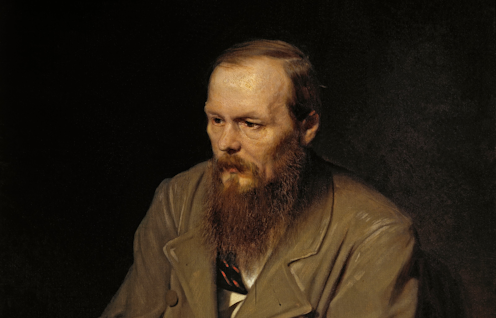How Dostoevsky overcame his gambling addiction
- Written by Stephen Dobson, Professor and Dean of Education and the Arts, CQUniversity Australia

Dostoevsky had to write The Gambler[1] in two months. He had no choice. He had accepted 3,000 roubles from a publisher named Stellovsky to keep his creditors at bay. If he failed to deliver a work of not less than ten printer’s sheets (160 pages) by November 1, 1866, Stellovsky would receive the rights and income for all of Dostoevsky’s previous and future work for nine years.
Dostoevsky broke off writing Crime and Punishment[2] to take on the seemingly insurmountable task of completing a novel in such a sort period of time. He drew on his experience of being addicted to gambling.
His gambling mania had first seized him in 1863 on a tour of Europe, where he developed a passion for roulette. Dostoevsky soon fell into a pattern of chasing his losses, telling himself that his fortunes would change and he would redeem himself:
…one turn of the wheel, and all will be changed, and those very moralists will be the first (I am convinced of that) to come up to congratulate me with friendly jests. And they will not all turn away from me as they do now. But, hang them all! What am I now? Zero. What may I be tomorrow? Tomorrow I may rise from the dead and begin to live again! There are still the makings of a man in me.
Boundless egoism
In Crime and Punishment, an impoverished student named Rodion Raskolnikov murders an elderly pawnbroker with an axe. The reader follows his dialogue with himself until he confesses and seeks atonement for his actions.
In The Gambler, there is only a spiral downward with no landing point. Alexei Ivanovich, a tutor working for the family of a once wealthy general, initially shows no interest or desire to gamble. By the end, he is totally addicted to roulette. His character is transformed. From what Dostoevsky calls an aristocratic disinterest in winning (or losing), Alexi becomes a person with a plebeian willingness to lose his very last coin.
The “aristocratic” type gambles only for pure pleasure. The “plebeian” embraces the risk of gambling in the hope of changing his life – if only he can win big enough.
Read more https://theconversation.com/how-dostoevsky-overcame-his-gambling-addiction-220655

















